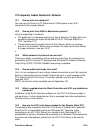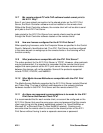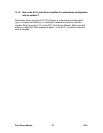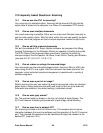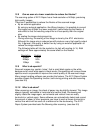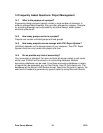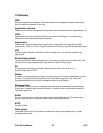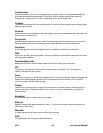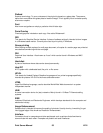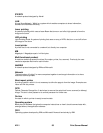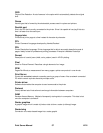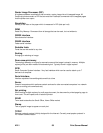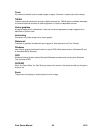
Print Server Manual 53 A741
15 Glossary
AMS
Automatic magnification Selection. Automatic reduction or enlargement, based on the original
size and paper size selected by the user.
Application software
Software that is written to do specific kinds of work, such as word processors, spreadsheets, etc.
ASCII
Abbreviation for American Standard Code for Information Interchange. It is a code used to
describe the most used alphanumeric characters.
Aspect ratio
Relationship of width to height. When aspect ration is maintained, the image will be scaled
proportionally. When it is not, the image is stretched horizontally or vertically (independent zoom).
APS
Automatic paper Selection. Automatic selection of paper tray –and thus size- based on the
original size.
Bi-directional parallel
Two way transmission from the parallel port in the computer to the printer and visa-versa. Fast
and user-friendly way to transmit data. Also referred to as Bi-tronics parallel.
Bit
A single piece of electronic information. Represented by either zero (0) or one (1).
Eight bits make up one BYTE.
Bitmap
A matrix of pixels representing an image. Normally each pixel will have 2 states, black or white
(bi-level). In a grayscale bitmap, each pixel can have a distinct grey level (e.g. 256 levels).
Grayscale bitmaps are much larger in storage size than bi-level bitmaps.
Bitmapped font
A font with a fixed point size (non-scalable). Each character is represented by a small bitmap.
Scaling such character often reduces the quality. Therefore for each fontsize there must be a
unique bitmapped font.
Buffer
An area of printer memory where information that is downloaded from the PC to the printer is
stored. Larger memory in the printer results in better printer performance
BYTE
A series of 8 bits
Clock speed
The speed at which the PC’s processor handles data. Higher clock speeds result in higher
processor performance



